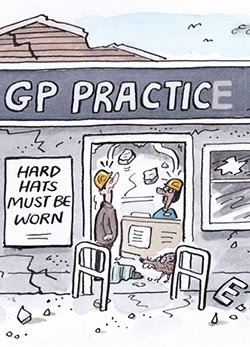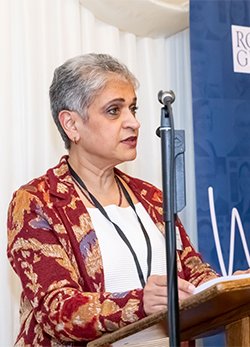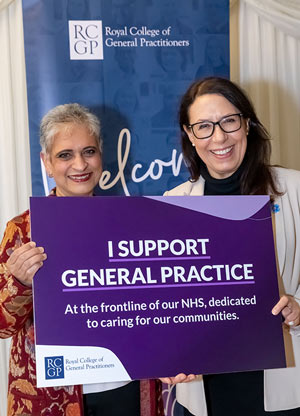
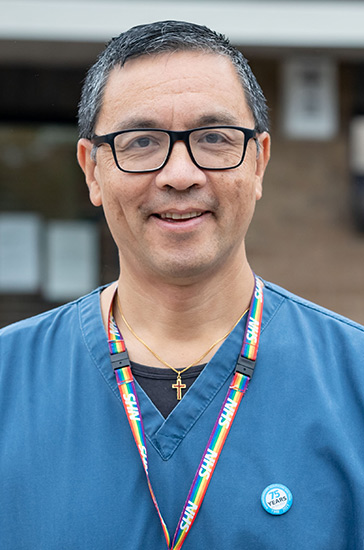
Prevention - better than cure?
The new government hasn’t quite been in power for 100 days, but the College has been busy since day one advocating for general practice to be at the forefront of policies coming out of the Department of Health and Social Care
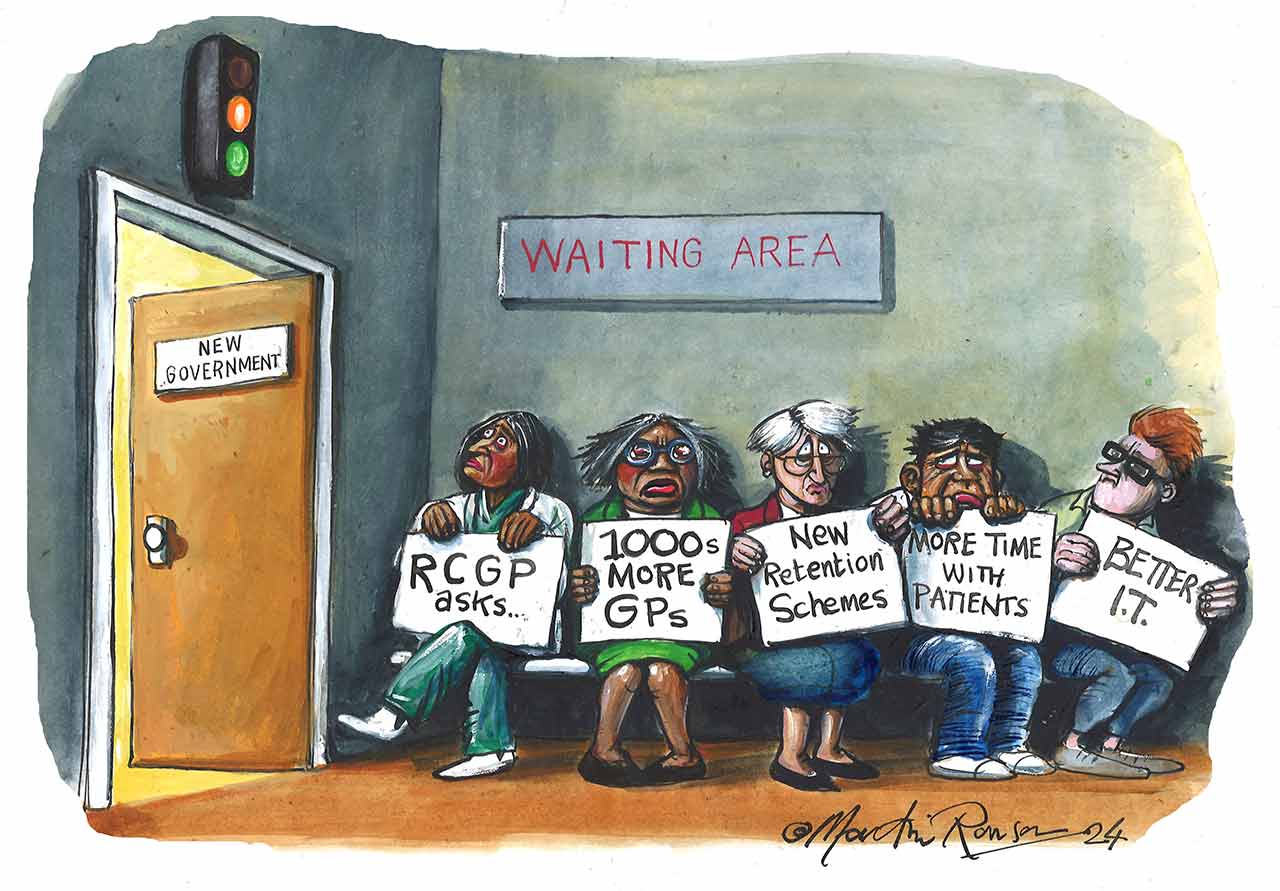
It has been an encouraging start. On his first full day as Health and Social Care Secretary, Wes Streeting visited a GP practice – and he very swiftly commissioned a review of the NHS by former surgeon and Labour Peer, Lord Darzi. The resulting report, published a couple of weeks ago, made very clear that more care – and crucially more funding - needs to move out of hospitals into the community.
Professor Kamila Hawthorne, RCGP Chair, was all over the airwaves speaking to BBC 5 Live, Radio 4’s World at One, BBC Newscast and Times Radio – as well as at the King’s Fund’s conference – to say that Darzi’s ‘diagnosis’ was accurate, his ‘prescription’ to shift more resource to general practice ‘made sense’ and that now what we need to see is action.
Well ahead of the General Election on 4 July, the College published its manifesto, outlining seven steps to save general practice from decades of neglect and underfunding. In the run-up to polling day we highlighted the unsafe workloads GP are facing and patients’ struggles to get our care in the media – and our members wrote to their local candidates in their thousands, stressing the severity of the crisis and urging the next government to act.
Throughout, one key thing the College was pushing was the need for more initiatives to keep GPs in the profession longer. This came through in our GP Voice survey, taken by more than 2,000 members – and which has featured in the Daily Telegraph, Daily Mirror, The Times, the Guardian and Press Association - which found 42% of respondents said they were unlikely to be working in general practice in the next five years, with 51% of those citing stress as the reason (ahead of 38% citing retirement plans).
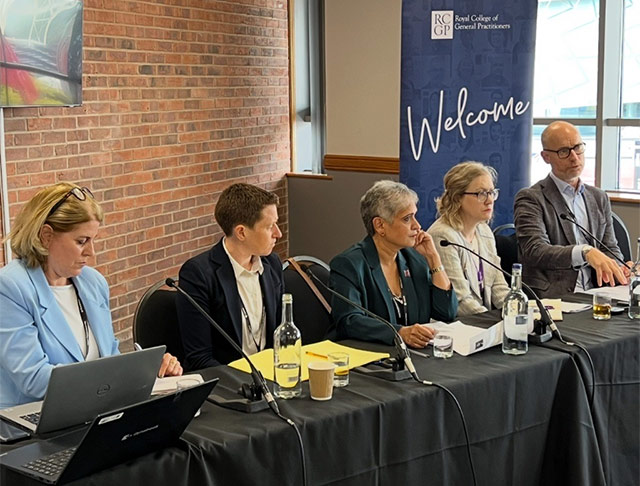
As such, as soon as the new government was in place, Prof Hawthorne and almost 10,000 members wrote to Wes Streeting urging him to review the NHS Long Term Workforce plan to focus it more on retention as a matter of urgency. Their letter outlined how deeply concerned the College is about current projections in the LTWP which, according to analysis by the National Audit Office, will only increase the number of fully qualified GPs by 4% by 2037, compared to a 49% growth in hospital consultants.
Another focus since the Election has been highlighting issues facing GPs who are about to qualify but are finding it difficult to secure employment. A College survey of GP registrars (some now newly qualified members) due to complete training between July and September this year found that only 47% of respondents have secured an NHS GP job in the UK, with 41% of these finding the process moderately or very difficult.
It highlighted its concerns in The Times and in Pulse – as well as behind the scenes in meetings with the DHSC and NHS England – and in response, the new government has announced a new pot of money (£82m) to complement ARRS funding (which practices could not use to employ GPs) that will be able to be used to employ GPs.
Whilst the College has welcomed this intervention, it has been clear that implementation will be vital. It has also said that this must only be seen as a short-term solution – and longer term the College wants to see more investment into core funding for practices, so that they can decide who to hire to best serve their patients.
Representatives from the College have attended the Lib Dems and Labour Party Conferences and will be attending the Conservatives conference next week. At Labour it hosted a packed fringe event exploring issues around GP access, with a panel chaired by Channel 4 News’ Victoria Macdonald and comprising Health Minister Stephen Kinnock, who has responsibility for primary care, Dr Becks Fisher from the Health Foundation and Sharon Brennan from National Voices alongside Prof Hawthorne.
Prof Hawthorne, said: “The results of our GP Voice survey have been stark. It is clear that general practice is in a dire situation. But it’s encouraging to see the new government – and the Darzi report – recognising this, and it will be vital that re-building a robust general practice service is central to the forthcoming 10-year plan for the NHS.
“We need to see reinvigorated efforts going into both implementing initiatives to tackle retention in general practice and into ensuring the GPs we are training have job security. Ultimately, we need many thousands more GPs, so that we can deliver the care our patients need.
“As the College looks ahead to its Annual Primary Care Conference in Liverpool next week, all eyes will be on Wes Streeting, who will be addressing delegates, to see what he has to say about what’s next for general practice and how he will be taking the learnings from the Darzi report forward.”
Following its Annual Conference, the College will be publishing a report on improving retention in general practice, and ramping up efforts to influence the Budget to make sure general practice isn’t overlooked.
Read more
Thank you for your feedback. Your response will help improve this page.
